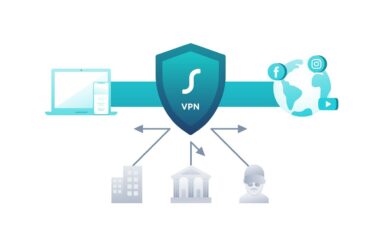Evaluating the Cost Benefits of Blockchain in Banking Operations
The implementation of blockchain technology in banking represents a profound shift towards enhancing efficiency and security. Financial institutions continually seek ways to streamline operations while mitigating risks. Banking operations traditionally involve layers of complexity, including transaction verification, reconciliation, and fraud prevention. Blockchain can simplify these operations by providing a single source of truth accessible to authorized participants. This transparency reduces the likelihood of discrepancies and promotes trust among stakeholders. Furthermore, this decentralized structure diminishes the reliance on intermediaries, thereby cutting transaction costs significantly. Lower operational expenses can lead to improved profit margins and more competitive offerings for customers. Moreover, the reduction in fraud risk translates into potential savings on insurance premiums and compliance costs. By adopting blockchain, banks can also foster stronger relationships with clients, as the speed of transactions increases significantly. This technology’s inherent ability to enable real-time settlements positions banks favorably in a rapidly evolving market. Overall, the investment in blockchain may yield substantial long-term benefits, making it a highly regarded strategic priority for financial institutions across the globe.
The advantages derived from blockchain in banking operations extend beyond just cost savings. Moreover, the implementation of smart contracts stands to revolutionize how agreements are executed within the banking sector. Smart contracts automate execution based on predefined conditions, reducing the necessity for manual oversight. This automation will not only eliminate human error but also enhance the speed of transactions. Financial service providers can achieve faster responses and settlements using smart contracts across various banking products, such as loans and derivatives. Additionally, customer experience can improve drastically, as transactions conducted through blockchain are more user-friendly. Blockchain’s ability to provide traceability allows clients to track transactions and verify their authenticity seamlessly. Reflecting on compliance, this technology can ensure a high level of data integrity and security. Financial institutions can adjust their compliance strategies more effectively while ensuring the safeguarding of sensitive customer information. Furthermore, blockchain can simplify reporting requirements by automating even complex regulatory frameworks. Relying on a reliable ledger minimizes discrepancies during audits, fostering trust in the overall financial ecosystem. In essence, the integration of blockchain within banking operations remains integral to future advancements and operational agility.
Risk Mitigation through Blockchain Adoption
One notable benefit of blockchain technology is risk mitigation, particularly regarding cybersecurity threats. In an era where cyberattacks compromise traditional banking systems, blockchain presents a formidable defense. Due to its decentralized nature, the chance of a single point of failure diminishes significantly. Multiple nodes hold copies of data, making unauthorized alterations considerably more difficult. Banks that adopt blockchain can enhance their security measures significantly, dissuading potential attacks aimed at tampering financial data. This robust security may result in decreased insurance costs as financial institutions show heightened resilience against cyber threats. Moreover, redundancy within the network ensures data availability even during operational disruptions. Faster recovery times during crisis situations can contribute to overall operational continuity, preserving the institution’s reputation. Additionally, the immutable characteristics of blockchain provide an extensive audit trail that can deter fraud and other malfeasance. Stakeholders gain peace of mind, knowing that any attempts at data modification are easily detectable. In a highly regulated industry, this increased protection can also lead to fewer regulatory penalties and fines. Thus, banks can enjoy an enriched reputation while fostering customer loyalty through their proactive approach to security.
In considering the integration of blockchain into banking operations, scalability presents an important challenge that must be addressed. Although blockchain has been heralded for its advantages, concerns arise about its ability to handle significant transaction volumes efficiently. Initial iterations of blockchain faced limitations regarding transaction throughput and latency, which may deter widespread adoption by major banks. However, advancements are continually being made to enhance scalability, ensuring that blockchain can support high-frequency trading and large-scale transactions. Solutions that involve off-chain processing, sharding, or layer-two networks aim to enhance efficiency while maintaining security features inherent to blockchain technology. With ongoing research in this area, banks can expect scalable solutions capable of handling increasing future transaction demands seamlessly. Additionally, partner collaborations among banks, technology providers, and fintech companies hold the potential for shared innovations. By working together, institutions can develop hybrid models that leverage the strengths of traditional systems and blockchain. This collaborative mindset can usher in a new era of banking where quick adaptability and cutting-edge technology coexist harmoniously, ultimately leading to improved banking services for consumers worldwide.
Enhancing Customer Relationships with Blockchain
Improving customer relationships stands as a vital goal for banks as they navigate the digital landscape. Blockchain technology plays an essential role in creating a more personalized banking experience. By enabling secure digital identities, it allows clients to control their data while providing banks with more accurate information to tailor services. Banks can offer a suite of personalized products and services built on insights derived from data-driven analyses made possible through blockchain. Moreover, clients may appreciate the transparency and control blockchain provides, thereby fostering trust that signifies loyalty. The time-consuming processes often associated with conventional banking are reduced significantly through blockchain-enabled solutions. The speed of transactions and application processing dramatically enhances the overall customer experience. Additionally, offering clients instant access to their financial data ensures that they remain informed and empowered. A focus on delivering value not only enhances customer satisfaction but can also cultivate long-term relationships that benefit both parties. Banks that leverage blockchain are likely to foster a sense of community, demonstrating their commitment to innovation while emphasizing their dedication to client needs. This transformation can position banks as forward-thinking institutions in an increasingly competitive market.
The cost benefits associated with blockchain in banking operations are indeed substantial, but challenges remain. Successful implementation often demands significant initial investments in technology and training. Financial institutions must assess their readiness for such an overhaul, identifying potential roadblocks before adoption. Talent acquisition or training becomes essential, as banks need skilled personnel who understand blockchain’s nuances. Moreover, regulatory uncertainties surrounding blockchain can pose additional challenges that institutions need to navigate cautiously. Establishing a clear regulatory framework is imperative for institutions ready to embrace this technology fully. Collaboration with stakeholders and regulators is crucial in fostering an environment that supports responsibly integrating blockchain systems. Furthermore, ensuring effective communications with clients about the transition will help ease concerns. Banks must actively engage customers, providing updates and guidance throughout the implementation phase. This interplay between financial institutions, clients, and regulators is crucial in ensuring smooth transitions. Building a strong foundation for its usage will ultimately advantage the banks adopting this technology. Gaining market share and improving operational efficiency will reward those willing to invest in blockchain and its capabilities. Therefore, a holistic approach is necessary for maximizing the cost benefits of blockchain in banking.
Conclusion: The Future of Banking with Blockchain
The future of banking undoubtedly lies in the successful integration of innovative technologies like blockchain. As the financial landscape evolves, institutions that adapt their operational frameworks stand to benefit significantly. The exploration of blockchain’s cost advantages is just the beginning, with opportunities for enhanced efficiency, security, and customer loyalty emerging. Banks can leverage these factors to gain a competitive advantage in an ever-changing market. Furthermore, as digital currencies gain traction, the need for blockchain’s capabilities becomes even more pronounced. Financial institutions must adopt proactive strategies that align with technological advancements while ensuring regulatory compliance. Innovation combined with a customer-centric focus will cultivate a banking environment characterized by transparency and trust. Embracing this evolution is essential for banks that aim to remain relevant in the future. As the banking sector embarks on this journey, ongoing collaboration and adaptability will drive success. Stakeholders across the industry must come together to embrace new technologies, enhance operations, and address challenges collaboratively. Ultimately, the comprehensive evaluation of blockchain will reveal its true potential, transforming the banking experience for future generations.
As banks analyze the impact of blockchain technology on their operations, thorough evaluations remain essential. Conducting a thorough analysis of costs versus benefits can lead to informed decision-making, driving successful outcomes. Leaders in the banking sector must engage with experts and technologists to identify optimal blockchain solutions tailored to their needs. Understanding the unique landscape of each institution will enhance the likelihood of successful integration while addressing potential pitfalls. Moreover, leveraging real-world use cases may guide banks toward best practices, enhancing their technological adoption. Financial institutions should be strategic in their planning, focusing on long-term effects rather than immediate gains. A thorough understanding of how blockchain can integrate with existing systems will ultimately upgrade operational capabilities. As banks strive to maintain efficiency amidst growing demands, recognizing the need for continuous improvement will be pivotal. Emphasizing employee contributions, fostering a culture of innovation, and streamlining communication will set the groundwork for success. Ultimately, determining the cost benefits of blockchain is an ongoing journey, requiring adaptability and foresight. Stakeholders must be poised to adjust their approaches while embracing technology transformations that are reshaping the banking industry.





